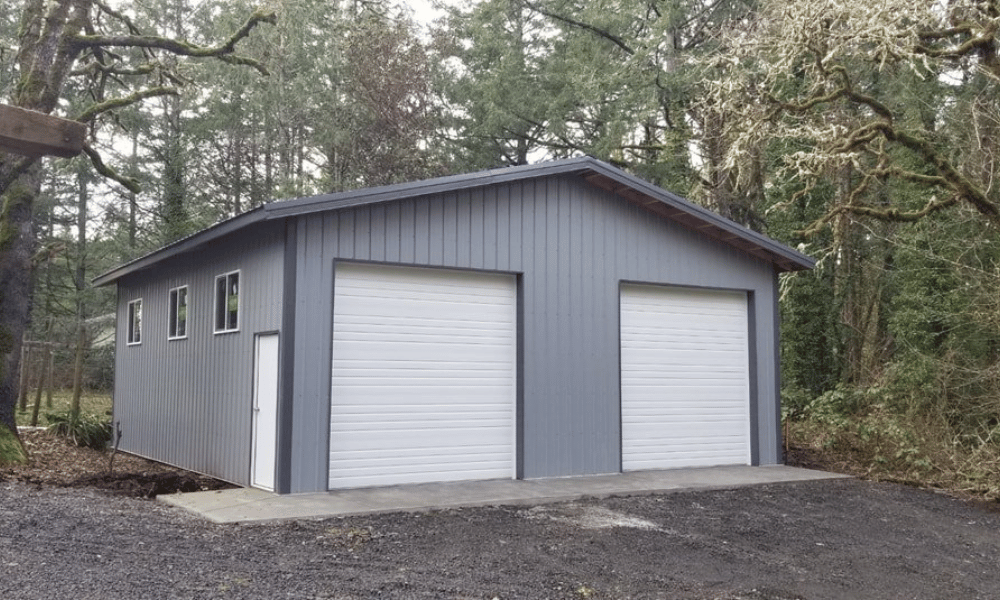Introduction
When it comes to choosing the right size for a pole barn garage, the question inevitably arises: "Is bigger always better?" Pole Barn Garage Builders in Springfield This seemingly simple inquiry can quickly spiral into a complex debate involving budget constraints, space availability, and personal needs. A pole barn garage can serve various purposes—from housing your vehicles to serving as a workshop or storage unit. It’s crucial, then, to evaluate what size will best meet your specific requirements without breaking the bank.
In this extensive guide, we’ll delve deep into various aspects of pole barn garages—sizes, uses, benefits, and even drawbacks. Through detailed analysis and expert insights, you’ll be equipped with all the information necessary to make an informed decision about your pole barn garage size.
Understanding Pole Barn Garages
What is a Pole Barn Garage?
A pole barn garage is a structure built using post-frame construction techniques. Unlike traditional buildings that use a heavy foundation, pole barns rely on vertical posts set in the ground or on concrete pads to support the weight of custom pole barn garages Eugene the structure.
The Basics of Pole Barn Construction
- Materials: Typically made from wood or metal. Design Flexibility: Can be customized easily according to individual needs. Cost-Effectiveness: Generally cheaper than conventional garages.
The Importance of Size in Your Pole Barn Garage
Why Does Size Matter?
When assessing whether "Is Bigger Always Better? Evaluating Sizes for Your Pole Barn Garage," one must consider functionality over sheer dimensions.
Space Utilization
How will you utilize the space? Will it house multiple vehicles, tools, or even an office?
Future Needs
Are you considering future expansions? Think about how your needs may evolve in the coming years.
Evaluating Different Sizes for Your Pole Barn Garage
Standard Sizes of Pole Barn Garages
Pole barn garages come in various standard sizes:
| Size (ft) | Dimensions | Typical Uses | |-----------|----------------|-------------------------------| | 24x24 | 576 sq ft | Single car + workspace | | 30x40 | 1200 sq ft | Two cars + additional storage | | 40x60 | 2400 sq ft | Multiple vehicles + workshop |
Custom Sizes: Pros and Cons
While standard sizes offer convenience, custom sizes cater to unique needs:
Pros
- Tailored fit for specific requirements Enhanced aesthetic appeal Potentially higher resale value
Cons
- Higher initial costs Longer construction times Complexity in design and planning
Factors Influencing Your Decision
Budget Considerations
Your budget significantly influences size choice. A larger pole barn garage typically requires more materials and labor.
Cost Breakdown:
| Item | Estimated Cost | |-------------------|----------------| | Materials | $10-$20/sq ft | | Labor | $5-$15/sq ft | | Permits/Fees | Varies by region|
Zoning Regulations and Building Codes
Before settling on a size, understanding local zoning laws is crucial. These regulations dictate how large you can build and where.
Additional Features to Consider
Height: More Than Just Aesthetic Appeal
Height can also affect both functionality and cost. A taller structure allows for additional vertical storage but may require specialized engineering.
Insulation: Adding Comfort and Value
If you're considering heating or cooling your pole barn garage, insulation becomes essential. Larger spaces may need more robust solutions.
Practical Uses for Your Pole Barn Garage
Vehicle Storage
A primary use for many is vehicle storage—think cars, boats, RVs. The size should accommodate not just parking but also easy access.
Workspace
Many opt to convert part of their garages into workshops or hobby zones.
Storage Solutions
Consider storage shelving systems that maximize vertical space if you're using it primarily for storage.
Maintenance Considerations Based on Size
Regardless of size, maintenance is vital:
Roof Maintenance: Larger roofs mean more area prone to leaks. Cleaning: Bigger spaces might take longer to clean. Climate Control Systems: The larger the space, the more complex your HVAC system may need to be.Is Bigger Always Better? Evaluating Sizes for Your Pole Barn Garage
The answer often lies somewhere between 'yes' and 'no.' While larger structures provide extra room for flexibility and multiple uses, they also come with increased costs and responsibilities. Therefore:
Size should align with purpose rather than merely aiming for grandeur.
FAQs About Pole Barn Garages
FAQ 1: What are typical dimensions for a standard pole barn garage?
Typical dimensions vary but popular sizes include 24x24 feet and 30x40 feet.
FAQ 2: How much does it cost per square foot?
Costs can range from $10-$20 per square foot depending on materials used.
FAQ 3: Can I customize my pole barn garage?
Absolutely! Customization allows you to tailor it according to your specific needs.
FAQ 4: What permits do I need before building?
Permit requirements vary by location; consult local zoning offices for accurate information.
FAQ 5: How long does it take to build a pole barn garage?
Construction timelines depend on size but usually range from several weeks to a few months.
FAQ 6: Do I need special insulation for larger garages?
Yes! Larger spaces may require specialized insulation solutions for effective climate control.
Conclusion
So here we are—after delving deeply into whether "Is Bigger Always Better? Evaluating Sizes for Your Pole Barn Garage," it's clear that there’s no one-size-fits-all answer (pun intended). Ultimately, the ideal size depends on a multitude of factors including budget constraints, intended usage, future expansion plans, and local regulations. Armed with this knowledge, you're now ready to make an informed decision that aligns perfectly with your lifestyle needs while maximizing functionality without throwing money down the drain! Remember—it's not just about bigger; it's about better tailored choices that suit you best!
